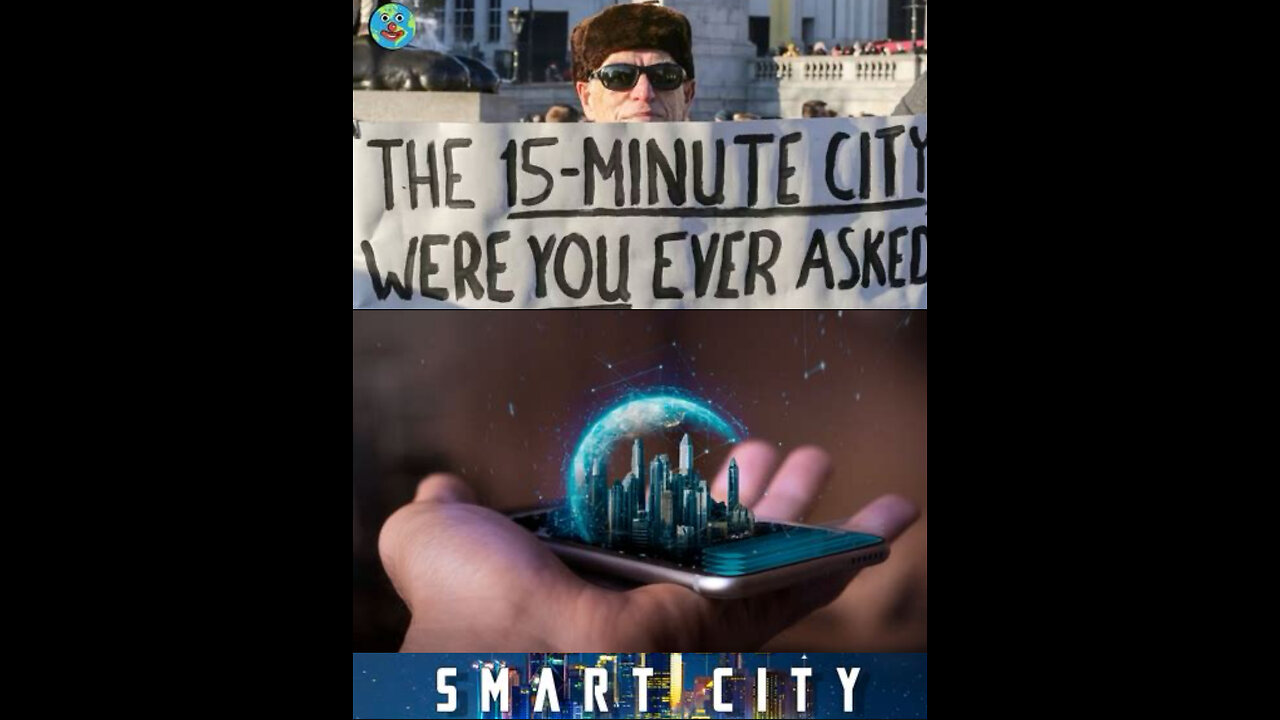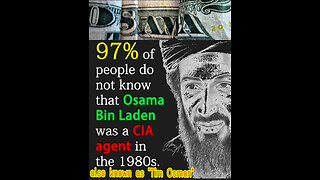Premium Only Content

The 15-Minute City: A Visionary Urban Model or a Gateway to Control?
The idea of the “15-minute city” has been widely hailed as an innovative approach to urban planning—a future where all essential services are available within a short walk or bike ride. Proponents argue that this model will reduce pollution, improve public health, and foster stronger communities. Yet, beneath the utopian rhetoric lies a more troubling possibility: that the 15-minute city concept could serve as a framework for unprecedented social control.
An Intriguing Alignment of Interests
First, consider who stands to benefit most from this initiative. It’s not the average city dweller who enjoys the freedom of traveling across a sprawling metropolis or exploring the countryside at will. Instead, it’s powerful global organizations, tech conglomerates, and government entities that gain leverage when urban populations are clustered into easily managed zones.
A major selling point of the 15-minute city is its environmental benefit—reducing carbon emissions by curbing car use. While undeniably appealing on the surface, this argument also positions policymakers to mandate electric vehicles, enforce emission quotas, and regulate personal mobility under the guise of “saving the planet.” The question is whether these measures serve the public good or simply consolidate power into fewer hands. Centralized control of transportation patterns could pave the way for dynamic road-pricing, automated traffic fines, and real-time surveillance of travel habits.
A Gateway to Digital Dependency
A closer look at the technological infrastructure that would support such cities reveals another layer of concern. Smart sensors, digital IDs, and centralized databases are all touted as necessary tools for optimizing urban living. But they also create the conditions for continuous surveillance. These systems could track not only where people go, but how they spend money, what they eat, and whom they interact with—data that can be analyzed, sold, or used to exert influence.
Some skeptics warn that this model might gradually condition people to accept limitations on their freedom. Today’s friendly “reminders” about reducing energy usage could evolve into restrictions on electricity consumption. Personalized dietary suggestions might turn into regulated rationing of certain foods. And once society becomes dependent on digital infrastructure for essentials, any dissenting voices could find themselves excluded from the system entirely—locked out of payment platforms, unable to access public services, or barred from travel.
The Road to Control Is Paved With Good Intentions
The true genius—and the potential danger—of the 15-minute city concept lies in its subtlety. Unlike overtly authoritarian policies, the push toward these compact urban zones is marketed as a grassroots, community-driven effort. Yet the policy frameworks often emerge from high-level international organizations and think tanks, not local neighborhoods. Cities around the world adopting similar models may reflect a top-down agenda rather than an organic movement.
What begins as a well-intentioned effort to combat climate change could slowly erode personal freedoms in ways the public never anticipated. Mandatory green zones and emission restrictions might first appear as minor inconveniences, but over time, they could transform into comprehensive restrictions on mobility, spending, and even behavior. The centralized nature of such a system would make it easy to expand controls incrementally, normalizing restrictions that once would have been unthinkable.
Toward a More Transparent Dialogue
None of this is to suggest that the 15-minute city is inherently a dystopian concept. The core idea—reducing commutes, fostering local economies, and improving quality of life—is undeniably appealing. But it is crucial to examine the mechanisms through which this vision is implemented and to question the long-term implications.
What safeguards are in place to prevent overreach? How will data collected from residents be stored, managed, and protected? Who decides which services are prioritized, and what accountability measures ensure these decisions serve the public rather than private interests? These are the questions that must be asked before we fully embrace a model that could redefine how we live and work.
A Future Worth Debating
The 15-minute city represents a paradigm shift in urban planning, one with the potential to improve millions of lives—or to limit them in ways we don’t yet fully understand. While it’s not a foregone conclusion that this model will lead to control and surveillance, the possibility is real enough to warrant serious scrutiny. By questioning assumptions, demanding transparency, and holding decision-makers accountable, we can ensure that the cities of the future serve the people who live in them—not just the interests of those who seek to manage them.
-
 5:42
5:42
FragmentsOfTruth
1 day agoUnanswered Questions: The Mysteries and Anomalies of 9/11 Evidence
1923 -
 LIVE
LIVE
Dr Disrespect
7 hours ago🔴LIVE - DR DISRESPECT - TRIPLE THREAT CHALLENGE - EXTREME EDITION
3,601 watching -
 LIVE
LIVE
2 MIKES LIVE
8 hours ago2 MIKES LIVE #170 with special guest Rep. Buddy Carter (R-GA)
324 watching -
 LIVE
LIVE
LFA TV
7 hours agoThe End of the January 6 Hoax | TRUMPET DAILY 1.22.25 7pm
624 watching -
 1:13:37
1:13:37
Battleground with Sean Parnell
5 hours agoPresident Trump Is On FIRE w/ Savage Rich Baris
110K13 -
 LIVE
LIVE
Melonie Mac
1 hour agoGo Boom Live Ep 34!
468 watching -
 LIVE
LIVE
Sarah Westall
35 minutes agoTrillion Dollar 5G Lawsuit, Project Archimedes, Mind Control & DEW Weapons w/Attorney Todd Callender
443 watching -
 53:11
53:11
Standpoint with Gabe Groisman
1 day agoTrump Is Crucial For Hostage Agreement Says Israeli Colonel
9.2K3 -
 1:01:22
1:01:22
Anthony Pompliano
1 day ago $0.39 earnedTrump Inauguration Sends Bitcoin Flying
7.73K -
 15:21
15:21
LFA TV
8 hours agoWHY GOLD WILL CONTINUE TO SKYROCKET
3.9K1